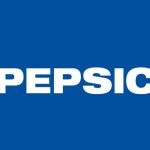By The Malketeer
Global Giant Cuts Forecast as Value-Seeking Trend Rises
In a surprising turn of events, Nestle, the global leader in packaged food, has revised its sales growth outlook downward, signalling a shift in consumer behaviour that marketers across industries should take note of.
The Swiss giant announced on Thursday (25 July), that it now expects full-year organic sales to grow by at least 3%, down from its previous projection of about 4%, according to Reuters.
This adjustment comes as the company reports first-half sales growth of 2.1%, falling short of analysts’ expectations of 2.5%.
Value-Seeking Behaviour on the Rise
CEO Mark Schneider highlighted a growing trend of “value-seeking behaviour” among consumers, particularly in North America, Europe, and China.
This shift is most pronounced among low-income consumers, suggesting that economic pressures are influencing purchasing decisions across diverse markets.
Pricing Strategy Under Pressure
Nestle’s pricing strategy, a key focus for marketers, has also seen a significant shift.
The company increased prices by only 2% in the first half, lower than the 3% analysts expected and marking a continued deceleration in price hikes.
This move reflects a broader industry trend of moderating price increases to regain sales volumes lost to cheaper alternatives.
Mixed Performance Across Categories
While Nestle managed to achieve a slight increase in sales volume (with Real Internal Growth up 0.1%), the company’s pricing strategy has raised concerns among industry analysts.
Analyst David Hayes noted that the pricing miss could worry investors about future margins and raises questions about brand strength for both Nestle and the wider sector.
The impact of these changes varied across Nestle’s product categories.
Coffee and pet food, typically strong performers for the company, saw the weakest price hikes.
Meanwhile, more commoditised categories like milk products and prepared dishes even experienced price declines in the second quarter.
Implications for Marketers
For marketers, Nestle’s experience underscores the importance of closely monitoring consumer sentiment and adapting strategies accordingly.
As consumers become increasingly cost-conscious, brands may need to reassess their pricing and value propositions to maintain market share and consumer loyalty.
This situation also highlights the delicate balance companies must strike between maintaining profitability and responding to changing consumer needs.
As the market leader, Nestle’s actions may set the tone for how other companies in the consumer goods sector approach these challenges in the coming months.
Navigating the New Consumer Landscape
As the industry navigates these shifting consumer trends, marketers will need to stay agile, continuously analysing market data and consumer insights to inform their strategies.
The ability to quickly adapt to changing consumer behaviours while maintaining brand equity will likely be a key differentiator in this evolving landscape.
MARKETING Magazine is not responsible for the content of external sites.










